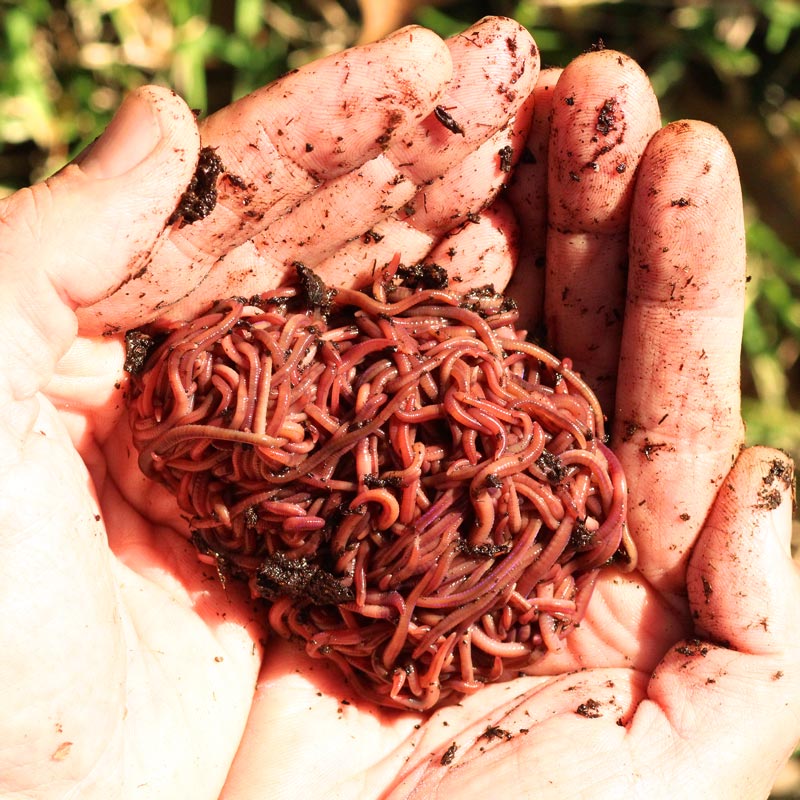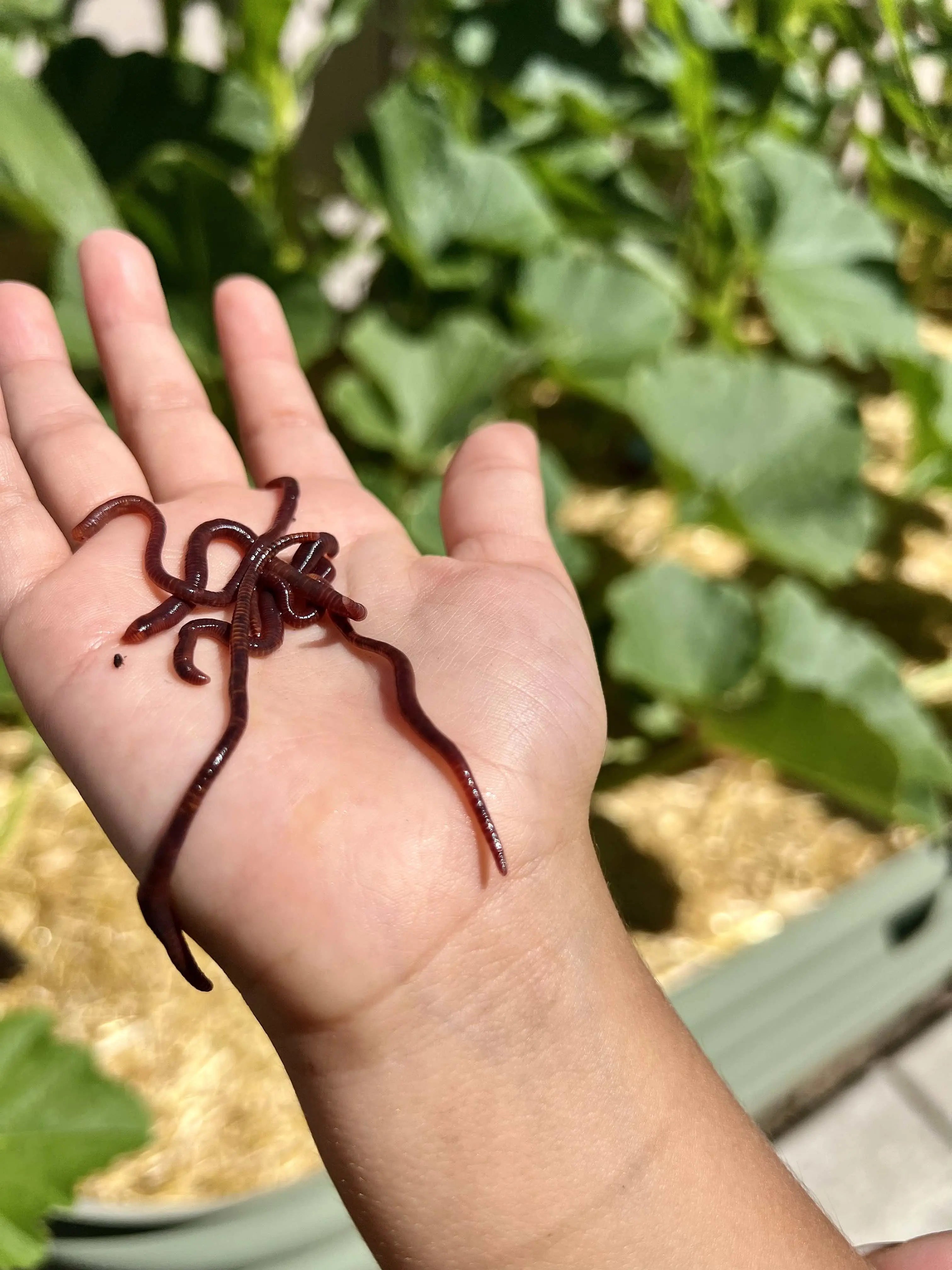Red Wiggler Worms - Perfect for Vermicomposting and Soil Enrichment
Red Wiggler Worms - Perfect for Vermicomposting and Soil Enrichment
Blog Article
Red Wiggler Worms Demystified: Unlocking the Tricks of Vermiculture for Greener Living and Nutrient-Rich Soil
In the realm of sustainable methods for improving dirt high quality and advertising eco-conscious living, red wiggler worms play a critical yet typically forgotten duty. Red Wiggler Worms. Understanding the intricacies of caring for these worms, optimizing their environment, and using their spreadings can lead to a greener way of living and healthier soil for plants to flourish.
The Role of Red Wiggler Worms
Red Wiggler worms play a vital duty in composting systems by efficiently breaking down natural matter right into nutrient-rich spreadings. These starved eaters consume a selection of natural products, such as kitchen scraps, lawn waste, and paper items. As they feed, the worms' digestion procedures damage down the natural matter right into a penalty, dark, and nutrient-dense material recognized as worm castings or vermicompost.
The spreadings generated by Red Wiggler worms are highly advantageous for soil health and wellness and plant growth. They are rich in important nutrients like nitrogen, phosphorus, and potassium, which are essential for supporting healthy and balanced plant growth. Furthermore, worm spreadings have valuable microbes and enzymes that aid enhance dirt framework, boost water retention, and enhance nutrient uptake by plants.
Benefits of Vermicomposting

Moreover, vermicompost, the nutrient-rich output of vermicomposting, functions as an outstanding organic fertilizer and soil conditioner. It boosts dirt structure, improves soil oygenation, and enhances soil dampness retention. These residential or commercial properties add to healthier plants with stronger origin systems and better resistance to conditions and insects. Vermicompost additionally enriches the soil with necessary nutrients like potassium, nitrogen, and phosphorus, promoting plant growth and overall soil fertility.
Additionally, vermicomposting assistances sustainable gardening practices by providing a chemical-free and all-natural alternative to synthetic fertilizers. Red Wiggler Worms. This eco-friendly strategy not just enhances the soil however additionally helps lower dependence on damaging chemicals, promoting a greener and more sustainable means of gardening
Setting Up a Worm Bin
When developing a worm container for vermicomposting, appropriate setup is critical to ensure the success of the composting procedure. The first action in establishing up a worm bin is choosing a suitable container. This can be a plastic bin click this or wood box that supplies adequate space for the worms to move and has correct water drainage holes to avoid waterlogging. Next, a bed linen material such as shredded paper, cardboard, or coconut coir ought to be added to the bin. This bed linens provides a comfy setting for the worms and assists keep moisture levels.
After adding the bed linens, introduce the red wiggler worms to the container. It is recommended to begin with a handful of worms and slowly enhance as they multiply. The worms must then be provided with food scraps such as fruit and veggie peels, coffee premises, and eggshells. It is necessary to avoid adding meat, dairy products, oily, or salty foods to avoid bring in bugs and producing undesirable odors.
Consistently keep track of the wetness degrees and temperature in the worm bin to make certain optimal problems for the worms. With appropriate setup and maintenance, the worm container will successfully convert organic waste into nutrient-rich compost for your plants and garden.
Harvesting Worm Castings
To efficiently accumulate nutrient-rich worm spreadings from your vermicomposting system, a systematic harvesting approach is essential. There are a couple of key actions to follow to make certain an effective procedure when it comes time to harvest the worm castings. Stop adding fresh food scraps to one side of the worm container for a pair of weeks prior to collecting. This motivates the worms to move to the side with fresh bed linen and food, making it much easier to dig the spreadings from the opposite side.

Troubleshooting Common Issues
Recognizing and attending to typical challenges that may arise during the vermicomposting procedure is important for keeping a healthy and effective worm container. Including excess food scraps can lead to a build-up of wetness and acidity in the worm bin, potentially hurting the read this worms. Another problem is undesirable smells emanating from the worm container.
In addition, if the worm populace is decreasing or the worms appear harmful, maybe because of environmental stress factors such as extreme temperatures or pH levels. Checking these aspects and making required modifications is vital for the wellness of the worms. By fixing these common problems quickly, vermicomposters can ensure a smooth and effective vermicomposting procedure while keeping a thriving worm population.

Verdict
In conclusion, red wiggler worms play an essential role in vermiculture by breaking down natural issue into nutrient-rich dirt. Establishing up a worm container is crucial for effective vermiculture, and gathering worm this contact form spreadings gives useful garden compost for gardening.
As they feed, the worms' gastrointestinal procedures damage down the organic issue into a fine, dark, and nutrient-dense product known as worm castings or vermicompost.
The spreadings created by Red Wiggler worms are highly useful for soil health and wellness and plant growth. Adding excess food scraps can lead to an accumulation of moisture and acidity in the worm bin, possibly damaging the worms.Additionally, if the worm population is declining or the worms appear harmful, it could be due to environmental stress factors such as severe temperatures or pH degrees. Establishing up a worm bin is vital for effective vermiculture, and gathering worm castings provides useful compost for horticulture.
Report this page